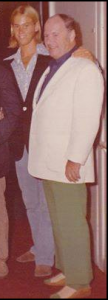
It was nice moving back home living with my parents after I finished my bachelor’s degree. My friendship with my father had always been about my accomplishments prior to that – qualifying for the Olympics, hitting it big with a jazz combo. But I wasn’t good enough at either one of those things. I won’t fault him for his enthusiasm or encouragement but there shouldn’t have been any talk about any Olympics and given my personal limits it was somewhat misguided. I had a four year scholarship in diving and it’s helpful to set goals. I dove against Greg Louganis and all the best but I wasn’t nearly talented enough to be an Olympian and the big dream continually put in front of me by his words ultimately left me feeling I had disappointed him. Coming home and living in the house a few years helped build our relationship on more solid ground.
That home was a place called Eden Road, in Palm Beach. Charley Carvin achieved a measure of success in life. Many would say I grew up in a privileged family but such advantage has its limits and it isn’t what many people think it is. In 1966 we moved just three or four houses away from the Kennedy family on the shore of Palm Beach. Dad’s father, Charley Carvin Sr., had taught him the textile business and been quite a personality in New York. Dad rode on his success but he took risks. He was a salesman and a marketing man, who smoked cigarettes and enjoyed two martini lunches, and had a trophy wife, in the style of the fictional Mad Man, Don Draper, living in a mansion in Rye.
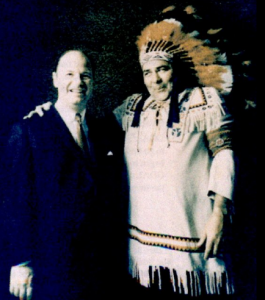
Dad always had stories to tell and they were always larger than life. We always had to check with Aunt Barbara to see which parts were true and where the exaggeration fit in. I’d have loved to have known what actually caused him to resign as VP of Allied Chemical’s Chemstran division. Aunt Barbara affirmed he was Jonathan Winters’ AA partner. The great comedian lived across the pond from us. Alcohol was likely part of it. But did he get fired because of his drinking? It’s nothing he ever hinted at with me. He liked me thinking of him as a superhero. People ask what class is – it’s a mother who throughout a lifetime has nothing but positive things to say about your father, yet never once lied. She was better looking than Betty Draper and she had more class too.
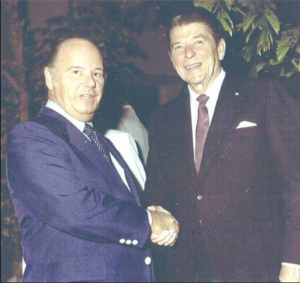
When I got home from college, Dad and I would talk about business and politics every night as we watched the MacNeil-Lehrer Report. The concept of “Country Club Republican” was something that hit home. Dad had been a member of sixty different golf clubs – one of the perks of his old job. Richard Nixon stayed at the house next door to ours when he campaigned in Florida and Dad was a big donor who leveraged his relationships on the island. Ronald Reagan was like the Messiah’s messenger for Dad, and then later Rush Limbaugh. But Limbaugh and Trump became Palm Beach powers after Dad lost his prominence. He had this in common with Trump – they had both received flack from the Town of Palm Beach for starting clubs that were ethnically inclusive. Dad had bought the Palm Beach Pier, which had been condemned for disrepair. He was trying to build an underwater restaurant there. But Palm Beach didn’t want black people walking across the bridge to fish over the ocean.
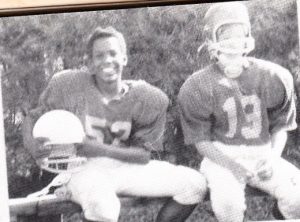
West Palm Beach is known for its racial divide. The disparity between rich and poor there, the workers and the wealthy, forced the distinction between class and classiness. Perceptions of snootiness, noses high in the air, seemed imaginary to me growing up. None of my friends ever did that, so far as I can remember, but obviously there was ethnic separation being imposed by the decision makers. The Jews had their club and the gentiles had theirs. The two did not mix. Blacks were not allowed on the island without permission at all. I can’t imagine what it must have been like for my friends, Kyle Boynton, or Beau and Kim Darden. To me their blackness was a cool thing.
They were just friends, the token black kids at Palm Beach Public School. Nobody had taught me to hate anybody. Their parents must have been wealthy to get there though. I know Boon Darden Sr. was Chief of the Riviera Beach Police. I never gave any thought to how out of place they may have felt. Girls were all I could think about at the time. Then desegregation brought busloads of black children to the island. Some of these kids were unfriendly. My brother got mugged. The days of Christmas parties at the Darden’s house were over. The new black kids clicked up and stayed separate. It was their comfort zone. I don’t blame them. But now I look back and think about what they probably thought about us. We were no longer people. We were the rich. And they didn’t want us in their neighborhoods. Racial division went two ways.
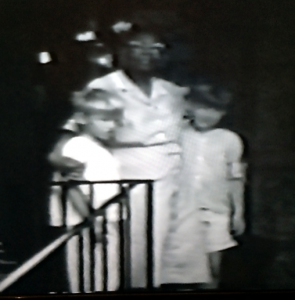
Privilege may mean naivety but it doesn’t mean hate. We weren’t just privileged. We were fortunate. Dad’s Dad, Pop Pop, was no wealthy kid. He was just a hard worker. Naturally, I have to sort out the exaggeration here, but as I understand it, his father, a bartender, had sent him packing out to San Francisco to live with his Uncle Joe because he was the son of a former wife. It is speculated he may not have been legitimate. His Uncle Joe was a cab driver who was later shot in the back of the head. None of that stopped Charley Sr. from moving up in the world. He moved back to Philadelphia and started at the bottom at Murphy textiles and ultimately won the affection of both father and daughter. When you marry into it you’re not earning all your money so I won’t make the claim he achieved the American dream through savings and hard work alone.
No. I’ll be the first to acknowledge that savings and hard work are elusive as hell when it comes to achieving the American dream. Anything going wrong with your health along the way can destroy the entire effort. One accident can lead to a downward spiral. We’re all just one fatal misstep away from failure. And if we manage not to screw everything up while remaining free of misfortune, there’s a certain tipping point for wealth that creates security. At that point you can let your portfolio managers limit your risk. Your interest and dividends will be enough to live on. If enough generations pass while your savings keep working for you and your children, you become a “blue blood.”
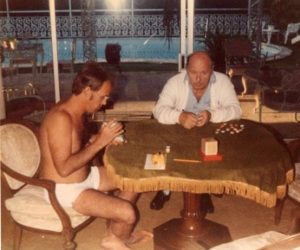
It’s like royalty. You don’t have to be an entrepreneur. But that’s what Dad was. He was a gambler. He was desperate to make it to the top so he could maintain and improve on the lifestyle of his father. Pop Pop was an adventurous and talented guy, but not a gambler. Dad was there, so close to that financial safety zone – but not quite all the way to blue blood freedom. In getting to know Dad, I hadn’t yet learned these distinctions. His great business acumen had been presented to me as a matter of experience and certainty – not foolish risk. But the ugly truth was this. After he resigned from Allied he was free to make his own fortune. He bought a seat belt manufacturing plant. He gambled on what to him looked like a sure thing. And he lost.
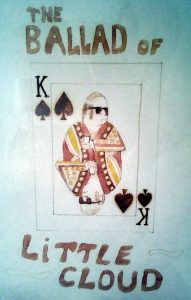
My father’s loss was my gain. I could easily have been handed a kingdom. I know that’s what he wanted. Instead, I saw and came to know and understand the life of an entrepreneur. And that is something more valuable than an MBA. I also came to realize there are two very different types of people living in Palm Beach. There are those who will never know the type of struggle and lack of security Dad knew. And then there are people like Dad. There are many on the island who don’t ask questions about money. They are simple people who make friends and enjoy living there while it lasts. And then there are the people who know you’re looking for a loan. You become a pariah when your cash runs short. You have to hide that fact for as long as you can when it happens.
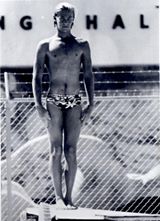
I no longer serve as a loan representative. It’s an unethical business that was eating away at my soul but I’ll never forget the hardship cases I heard every day. Everybody had a story leading up to why they were desperate enough to borrow money from me at rates above 30%. It was mostly car repairs, health problems, lost jobs, evictions. Occasionally it was family members borrowing their own money to care for their loved ones. I respect sacrificial giving. But there is nothing I understand better than the struggle of the entrepreneur. Some would call me still wet behind the ears looking for $20-40,000 to start a business. Then they would tell me about their current debt and income. I knew they weren’t getting any loan. What they needed was an investor.
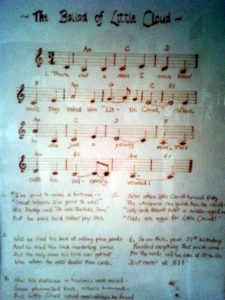
And then there was the woman who had gotten herself into business but failed. People have no sympathy for failing entrepreneurs. They are angry at them for spending their money foolishly. Banks can’t loan them money – too much risk. I may have been one of the only people on this planet qualified to offer comfort to a woman like that. Entrepreneurs have to borrow money from friends and family to get a start. Friends and family may loan you money for a business once, but seldom twice. You’ve got to show them a return on their investment the first time around. You can’t have a better idea down the road. It doesn’t work. If you fail, you don’t just lose your savings. You lose your family and friends.
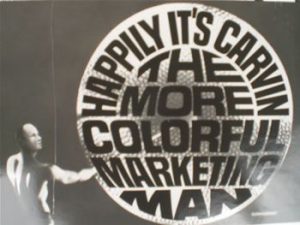
The serial entrepreneur knows nothing in this world other than how to have a dream and make it happen. The risk they take when they attempt to live out their dream involves the loss of everything that matters most. It’s not just the money. It’s the relationships. It can take a lifetime to gain back forgiveness and respect – most never offer it. Those who suffer from substance abuse addictions enjoy far more understanding than failed entrepreneurs. And yet if you look at the memes on the Internet – one after the other encourages entrepreneurs to never give up. Never giving up is the core mantra. Imagine a world where addicts are encouraged to never give up on their drug induced euphoria. That’s what it’s like for entrepreneurs. They can’t escape how they are wired. They are told to get real jobs by those who think real jobs are what normal people do – people who save their money, pay their insurance, and live within their means. Such talk comes from the same people who reject the term “living wage.” On principle, you should be able to earn $2 dollars a day and your family should be just fine. It doesn’t matter that living within your means means being homeless.
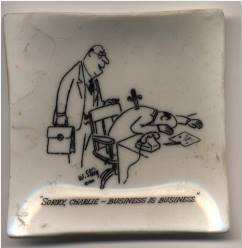
What a very different world the entrepreneur lives in compared to the corporate mogul, who calls himself an entrepreneur. The mogul is really just a portfolio manager. Even the venture capitalist is all about valuating businesses and mitigating risks. Passion for a dream is a distraction. The angel investor comes to save the entrepreneur’s day but is otherwise known as a shark. If you want cash to run a business – go to your family and friends. If you run out of family and friends to borrow from because you’ve failed once, produce a miracle. Produce a miracle because that is what is expected of the superheros we call entrepreneurs. The moguls take the name. The sharks live on the blood of real entrepreneurs.
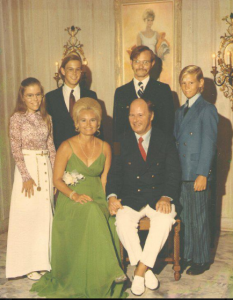
Who is the true “serial entrepreneur”? Is it the person who has dreams they can’t give up on even if they fail? Is it the person who reinvents it and keeps coming back? Or is it the one who is lucky enough to pick more than one good start up to risk some of his spare money on? I mean no disrespect to the investor but the true serial entrepreneur is the one with the passion so great that he puts everything he has into it. Anyone worthy of the name “entrepreneur” will come back to life after everybody thought they were dead. There was a brief time when Dad had enough money to be the portfolio manager type but he threw everything he had into his big bets. The company owner takes on the risk. That’s why they reap the rewards if they succeed.
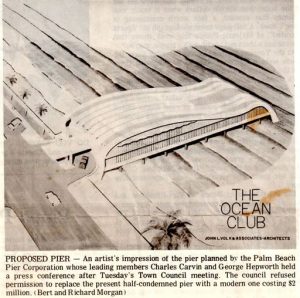
It was good to learn this from Dad as we watched the news every night. Crossfire came on next. And it’s an irony. He knew the stress his business put him through and saw that I wanted to own my own business too. He’d encouraged me to get into music and to dive against impossible odds. And then he did what he could to discourage me from going into business. He wanted to spare me the heart ache. I was a savings counselor at a Savings and Loan. You could get a T30 Certificate of Deposit and earn 18%. Before his bankruptcy, Dad was paying out over 30% on the money he was borrowing to keep his business afloat. I saw it ripping him apart. Somehow several years later he managed to pay off the IRS and sell the house on Eden Road. Working at a bank was about as interesting to me as watching grass grow.
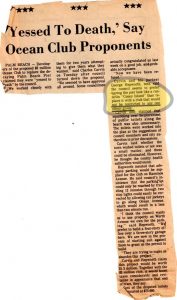
Donald Trump and Rush Limbaugh moved onto the island right around when we moved off. Now that was exciting. Trump turned Meriwether Post’s house into a country club. Corinne used to babysit for Timmy Griffin there and I had had a few peeks. As Dad’s health kept heading south, his stories kept coming in. He was jealous of Trump’s bankruptcies, him and Jud Kasuba. “If you’re going to have a bankruptcy,” he would say to me, “fail so big the banks have to bail you out.”
As he embraced his failure, Dad’s stories grew more spiritual. He was Catholic and he wanted me to be a priest. He couldn’t tell me this, lest I lose respect for him, but to his mind it was essential in business to “sell the customer what they need, not what they want.” It was one of the eight slogans in his Total Marketing Concept. The customer may not really need it. But you have to believe they do if you’re going to market your product. Enthusiasm and excitement. That’s what really matters. He knew my sense of ethics would never swallow that. I was all about delivering what you promise. He was right.
That was Dad’s dirty little secret. He preached Republican libertarianism and introduced me to Walter Williams. But he knew the ways of this world and there was a disconnect between the supposed positive morality of free market capitalism and the world he knew as a marketing man. Sales wasn’t about selling people what they want. It was about showing them they need what you want them to want. If that meant dealing in excitement to sell an illusion, so be it. When a person buys an illusion it isn’t a fair exchange of values. It is one person robbing another. Dad saw I had my mom’s innocence in a world full of guile. He wanted to keep it that way.
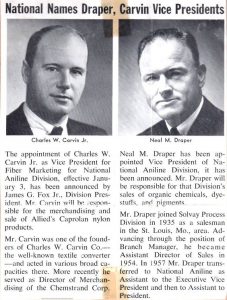
But Dad was not going to be able to stop me. He set me in motion to think globally when he taught me to think like an Olympic champion. And when he talked about my future in music, it wasn’t just so I could play to my children. Success was defined by the names of well known musicians. It didn’t matter if I lacked sufficient talent, or not. There was no such thing as half-way in the world Dad showed me. Nightly political discussions magnified this because together what we talked about was how to fix the world. Dad was very animated in his opinion. He sold what the world needs to his believing son. If you hate Ronald Reagan for whatever reason, just pretend he was a Democrat. It makes no difference. Dad built up in me a fire for changing things. We had a vision for a better world. And when he did that, it wasn’t something he could put out.
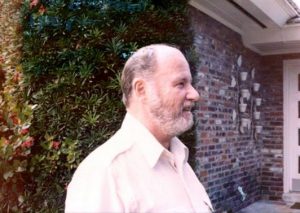
Then came 1982. I didn’t go to the Catholic Seminary to be a parish priest. I went as a layman wanting to lead laymen. I had been working at the Savings and Loan for two years at that point and had just taken a job with the US Postal Service. I moved into a town home and it’s probably a good thing I moved out of Dad’s house because it was while working at the S&L that it suddenly dawned on me that capitalism was the problem rather than the solution. I had a job that involved nothing but shifting people’s money around. I wasn’t producing any real goods or services that tangibly improved anyone’s quality of life. It occurred to me that the vast majority of jobs were actually like that, including Dad’s marketing job at Allied. It was a horrible waste of human effort. I could be making widgets with my hands or serving tables or fixing toilets and accomplishing more with my time. Delivering mail was liberating. Part of it was bills but another part was nice letters and packages.
People used to write letters.
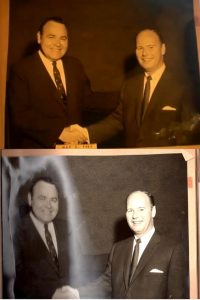
That was when the concept of an incentivized asynalagonomy came to me. I entered that seminary with this on my mind, and surprisingly, my idea for a money-less economy was very well received and I quickly found myself being introduced to a cadre of Marxists at the Catholic Regional Seminary.
But my favor with them was very short-lived thanks to the influence of my Dad. Coming home with a report of them met with all the reasons Ronald Reagan was needed so badly. My mom, a Presbyterian, was relieved to hear of the Catholic Communists. Perhaps it would dissolve some of my Dad’s criticism of her pastor for preaching unilateral disarmament at a time when what was needed more than ever was a total commitment to the policy of Mutually Assured Destruction. But Dad’s Catholic faith had blinders to such fair criticism. God’s special providence was on the Catholic Church. He would stand on the idea that the gates of hell couldn’t prevail against it. The problem of Communism at the Seminary was going to go away just like all heresies do over time.
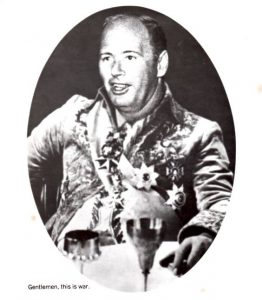
Maybe the Communists would but not the Democrats. They were at the Seminary to stay. And by 1986, the Boland Amendment was preventing funding of anti-Communist efforts in Latin America. Ollie North was raising funds in ways that got Reagan in trouble and a not so well remembered guy, Sam Hall, an Olympic diver turned counter-terrorist became my new role model. Dad brought me back around full swing cleaning the seminary of its heretical liberation theology. I even found evidence that the MaryKnoll sisters were shipping guns to the Sandinistas. Well, that certainly wasn’t very peaceful. And it wasn’t something I should have shown my Social Justice teacher, a Trotskyite. The Seminary no longer offered the classes necessary for me to complete my Masters in Theology degree after that. Well at least they wouldn’t ship me off to some parish assignment in the middle of nowhere as they were known to do with their controversial priests. I’d accept the incompleted degree as the price for my freedom to actually change the world. Youth is such a beautiful thing. You can do anything.
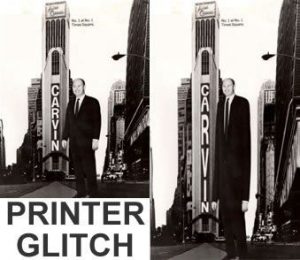
So here are just a few closing thoughts for this page in my story. First, I am not my father. I listed to my father. I considered the Republican Party and became familiar with Libertarian ideology. I accepted the trickle down theory as axiomatic for capitalist paradigms and could see how government had done nothing but destroy my father’s hopes and dreams. I was never a Communist. Those people believe in revolution. Violence is inefficient. Communism is even more inefficient than incentivized tradeless economies are efficient.
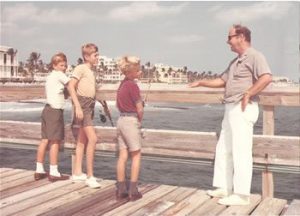
And the whole capitalist thing? My dad’s example was proof positive that it takes money to make money. A key trick to capitalism is capital. The large corporation has distinct advantages over the individual. Being a shareholder is not being an entrepreneur. It is taking a free ride on a system the way a surfer takes a free ride on a wave if they are lucky to be positioned for doing it at the right time. It’s not like a corporate board doesn’t have some input. A surfer has to have some instinct and experience and has to paddle and have balance. Even a portfolio holder needs that much skill. But entrepreneurship is dead in America if that’s all it is anymore. Is entrepreneurship dead? My family hates my Dad’s failure. They hate my failure.
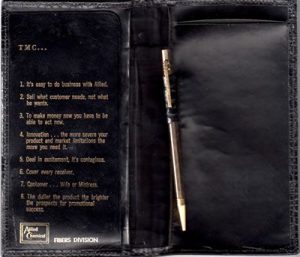
And what about the Communist thing? Incentivized asynalagonomy understands that Communism fails because the people have no incentive to work. They can’t even call anything their own. Socialism and Communism have never achieved more than state Capitalism. They’ve never been asynalagonomies, much less incentivized ones. There is nothing in common between them. Communism is an illusion. And the idiots of this world are trying to force it on us through violent revolution. Or they were. Even the MaryKnoll nuns have helped them. It’s just one more raw marketing deal in this world.
And what people need, not what they want, is incentivized asynalagonomy. “The duller the product the greater the prospects for success,” my Dad used to say. That’s well and good, Dad. But you’ve got to have a marketing organization if you want total marketing. I haven’t given up on the idea this can’t be done without cash. Just show me how to find my partners.
